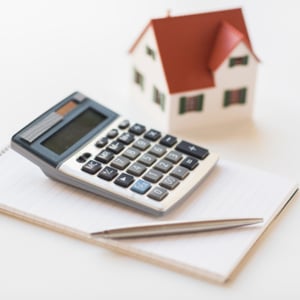.jpg?width=1200&name=Happy%20Home%20Buyer%20(1).jpg)
These days that's the million dollar question – quite literally in Victoria and the Greater Vancouver areas. Buying a house, especially your first home, is a major decision. Auxilium Mortgage owner Kam Brar looks at some of the factors you should consider if you decide to buy property in 2021.
Emotional Considerations for Buying a Home
If you had asked me at the beginning of 2020 what I thought real estate was going to do, I would have said it will be flat or grow at a very small pace – nothing insane or crazy. Then we began to hear about COVID, originating out of China and exported worldwide, and suddenly global markets came to a grinding halt. Politicians all over the world began responding to COVID and in most nations lockdowns began. Canada was no different and what began as a 14-day event to slow the spread of the virus so hospitals wouldn't be overwhelmed morphed into 8-plus months of on-and-off restrictions.
At first the real estate market kept moving along, but in late spring through mid-summer things basically came to a standstill as both realtors and buyers stopped going into homes and most sellers didn't want anyone in their homes anyway. During this time, the number of properties bought & sold declined quickly, but prices continued to hold at some of the most expensive in the market as inventory began to dry up. At the beginning of 2020 inventory was below historical levels and the lockdowns exacerbated that much further. While sales levels & inventory fell dramatically it appears that pent up demand didn't, so much so that when realtors & buyers & sellers finally came out of their homes the market went crazy and since late July has continued to do so.
At the beginning of the year if you had told me that there would once again be bidding wars, unconditional offers, and homes on the market for only a few days I would have said, "Not a chance!" but here we are.
I'm a firm believer that when it comes to investing, whether in the real estate market or the stock market, it simply boils down to greed or fear. Folks are betting that the market will continue to rise and are afraid if they don't jump in they are going to miss out, or they are afraid it's going to drop and don't want to lose money buying prematurely. Which camp is right? That all depends on whom you listen to. The beautiful thing about hindsight is no one is ever wrong and everyone can 'spin' things to achieve their narrative.
.jpg?width=300&name=Crystal%20Ball%20(1).jpg) Predicting the future is something I'm asked to do quite often. The question is usually, "Do you think it's a good time to purchase, invest in, or sell real estate right now?" My go-to answer to that question time and time again is, "If I had a crystal ball I wouldn't be sitting here. I would be retired on a beach in Hawaii somewhere!" I even have a crystal ball and no matter how many times I look into it, rub it, or ask it a question, nothing – not even the winning numbers to the lottery.
Predicting the future is something I'm asked to do quite often. The question is usually, "Do you think it's a good time to purchase, invest in, or sell real estate right now?" My go-to answer to that question time and time again is, "If I had a crystal ball I wouldn't be sitting here. I would be retired on a beach in Hawaii somewhere!" I even have a crystal ball and no matter how many times I look into it, rub it, or ask it a question, nothing – not even the winning numbers to the lottery.
The best advice I can give you is whether you're looking to buy property, sell, or invest do it only if it makes sense to you. Don't do it out of fear of missing out (FOMO) or because everyone else thinks you should: it has to be right for you.
Unfortunately, due to all the 'house porn' out there these days that makes buying, renovating, and flipping a property seem easy, very few folks think of a home as a place to lay down roots or raise a family. A house is merely viewed as an investment. While it's true that a home for most Canadians is their single largest investment, it shouldn't solely be viewed from a perspective of dollars & cents.
Financial Considerations for Buying a Home
Once you get the past the emotional decision of whether to buy a home, it's time to consider the financial side of things.
If you live in Victoria it's likely that you are paying an insane amount for rent and it's money you'll never get back. I'm sure you've been told that if you're renting you are simply throwing your money away, but it's not as simple as that. While it's true that 100% of your rent goes to your landlord, the fact is that if you didn't pay it you would have nowhere to live.
If you own your home, chances are like most Canadians you have a mortgage loan that you're required to make payments on. Every dollar you pay is a blend of interest & principal. With interest rates being so low, the portion which goes to each is heavily weighted to principal: in fact nearly 70% of each dollar is going to principal and only a meager 30% is going to interest. For comparison, when interest rates were in the teens it was upwards of 90% of each payment going to interest and around 10% going to principal.
Rent vs Buy a Condo: Some Mortgage Math
 Let's suppose you pay $2000 a month in rent. Each month that $2000 is gone from your wallet. Now if you budget the same amount for a property you own, allowing for property taxes ($125/mo.) and strata fees ($300/mo. if you purchased a condo), you would be left with $1575 for the mortgage payment. That payment translates to a condo with a purchase price of $387,000 with $19,350 for your down payment. By the time mortgage insurance fees are added ($14,706) the total mortgage loan would be $382,356.
Let's suppose you pay $2000 a month in rent. Each month that $2000 is gone from your wallet. Now if you budget the same amount for a property you own, allowing for property taxes ($125/mo.) and strata fees ($300/mo. if you purchased a condo), you would be left with $1575 for the mortgage payment. That payment translates to a condo with a purchase price of $387,000 with $19,350 for your down payment. By the time mortgage insurance fees are added ($14,706) the total mortgage loan would be $382,356.
Let's flash forward in time 5 years and see where you're at financially if you rented vs purchased.
Renting
- $2000 per month X 60 months = $120,000 is gone
Purchasing
- Mortgage payments $1575 per month X 60 months = $94,500 in total payments
- 70% approximately going to principal = $66,150
- 30% approximately going to interest = $28,350
- Strata fees $300 per month X 60 months = $18,000
- Property taxes of $125 per month X 60 months = $7,500
- Property transfer tax = $0 assuming you are exempt due to being first time home buyer, otherwise factor in $5,740
- Legal fees = estimated $1,500
- Down payment = $19,350 paid up front
For the purpose of this example we are going to assume the following:
- property values remain constant
- rent remains constant
- strata fees & property taxes remain constant
- no additional maintenance is factored in
So where does that leave you at the end of 5 years?
Renting total spent = $120,000
Purchasing total spent = $140,850 (including down payment)
At first glance from a purely cash flow basis you've spent $20,850 more purchasing. However, you've also paid your mortgage debt down by $66,150, so that means overall you're $45,300 (or $39,610 if you weren't a first time buyer) ahead over the 5 years.
Keep in mind that if you were to continue to compare this for 5 more years you would be even further ahead, as the one-time down payment as well as legal costs and property transfer tax wouldn't be applicable.
As I mentioned above, I've left out any change in property value, as well as increases for ongoing costs and maintenance; on the other hand I've also not factored in rents going up. You're free to plug in whatever values you want to attribute to those – you may even want to try one of our mortgage calculators for yourself.
My purpose in walking you through this exercise was to demonstrate that, due to the unusual financial times we find ourselves in with record low interest rates, buying a home rather than renting is the hands down financial winner. Whether that reason alone makes it the right time for you to buy, I'll leave to you to determine.
 Let's Work Together on Buying Your Next Home
Let's Work Together on Buying Your Next Home
Our team not only does the math for you, we also make sure the mortgage solution we find fits with your lifestyle and goals. If you're ready to take the next step, download our free guide for First Time Home Buyers or contact us to start a conversation with a mortgage specialist.




